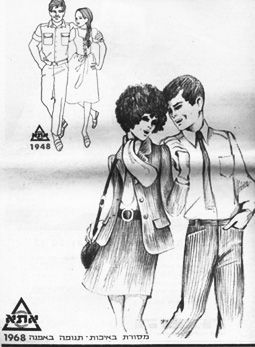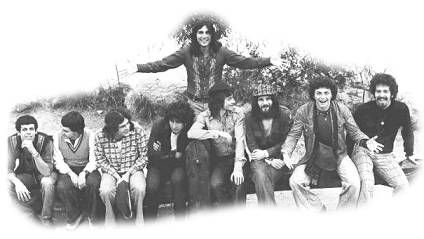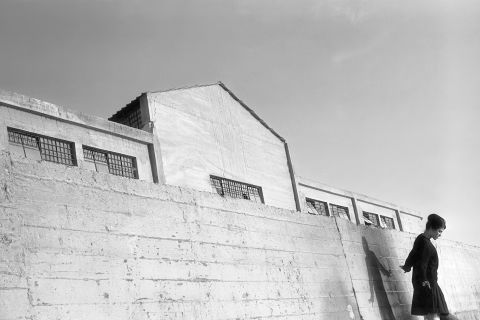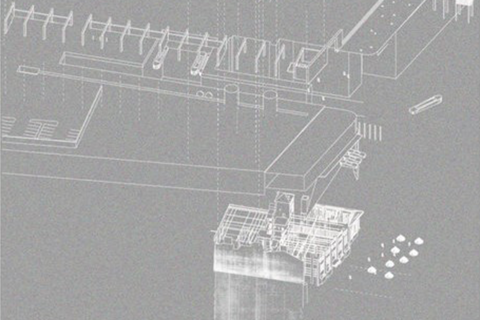Bezalel News
חדשות בצלאל
أخبار بتسلئيل
Israeli Fashion- From Kibbutz Clothing to Global Fashion
Although it seems to us that fashion was always a part of human history, it was actually invented in the 14th century. Until then people wore long gowns that hid the body and this clothing style did not change for hundreds of years. In the 14th century people started wearing alternative clothing that was considered to be "correct", "worthy" and even "beautiful" for a certain time period. The transition from clothing to fashion, is an active expression and manifestation of a change from a clothing society to a fashion society. A clothing society sanctifies tradition, repeats it and seeks to erase individualism in order to preserve the collective. In contrast, fashion society appreciates uniqueness, innovation and encourages individualism. The western world warmly and rapidly embraced fashion and the values of a fashion society.
But if one thinks that the clothing society and its values are long neglected and forgotten, it is not so! In Israel there is one special case where a clothing society existed even in the 20th century. It happened before and after the establishment of the state in the Kibbutz society. This society demanded an almost uniform dress code for everyone, concentrated purchases, accompanied at times with a lack of ownership that strengthened the appearance of uniformity. Kibbutz clothing were very simple: long or short khaki pants, blue or khaki work shirts, white shirts for Sabbath and holidays, biblical-style sandals, work boots and a round brimless hat.
Women dressed in simple clothes as well, (light color dresses, an apron on top and simple sandals). They avoided makeup and nail polish and some women even wore men's clothing. The simplicity of the clothes reflected Kibbutz values, where the will of the collective was far more important than the will of the individual. This included personal sacrifices and engagement in lofty pursuits for the benefit of the community. These ideals spread throughout the country, including the dress code. After the Six Day War, and more so after the 1977 "transformation", the Israeli society turned in new directions, including self-fulfillment, individualism, creativity and originality, openness to new ideas, new ideals and more. These are exact expressions of the fashion society. Along with that, Israel adopted the global fashion world, with its constant changes.
What are the values expressed in the clothing we wear? What messages do we convey to the world in our dress code? What are the products of Israeliana and in what way do they express our local values?
In the Department of Visual and Material Culture in Bezalel, we will study the meanings behind visual and material systems such as attire and clothing and their power in building and creating a society.
Dr. Shoshana Marzel
Lecturer in the Department of Visual and Material Culture









